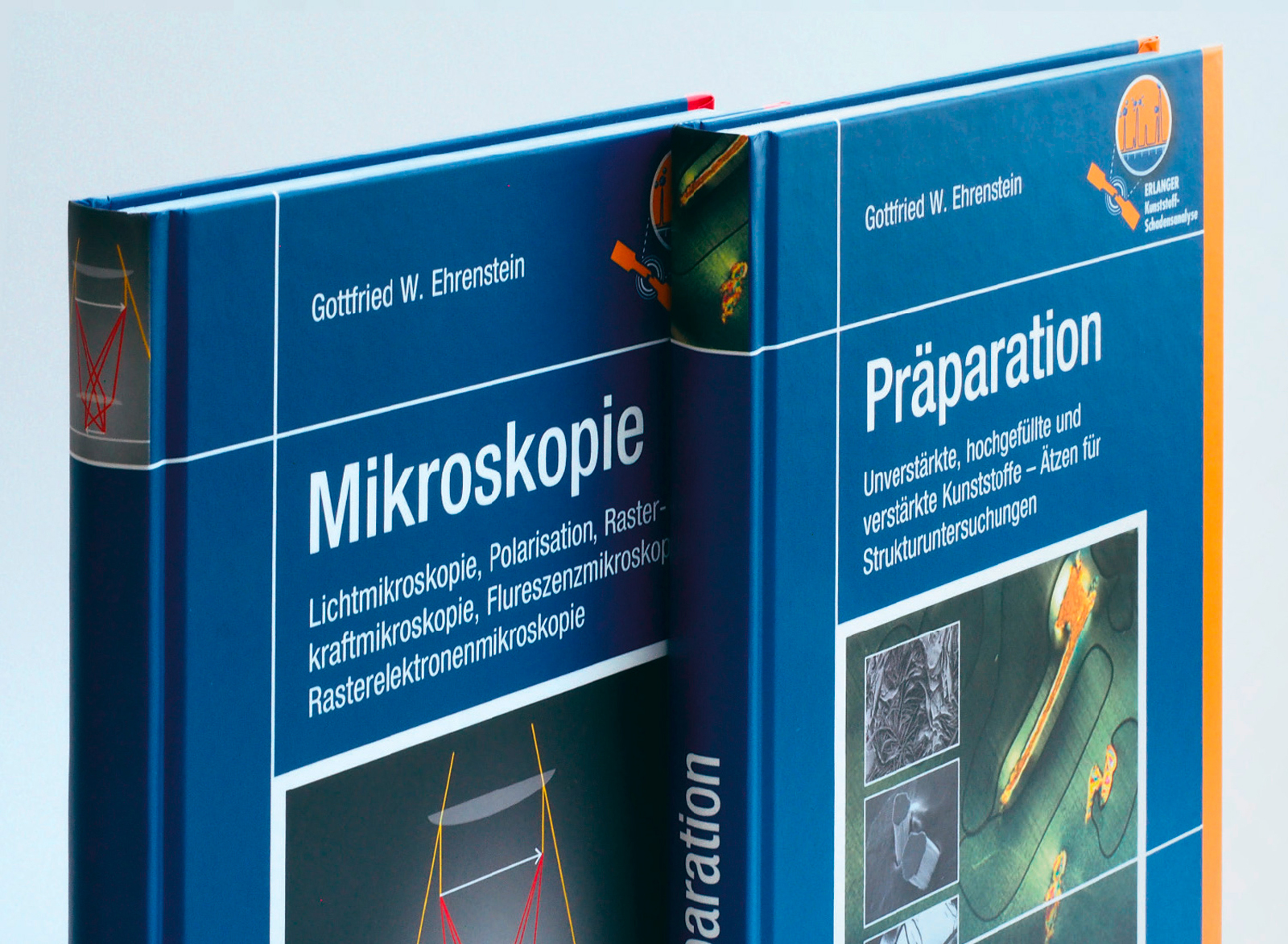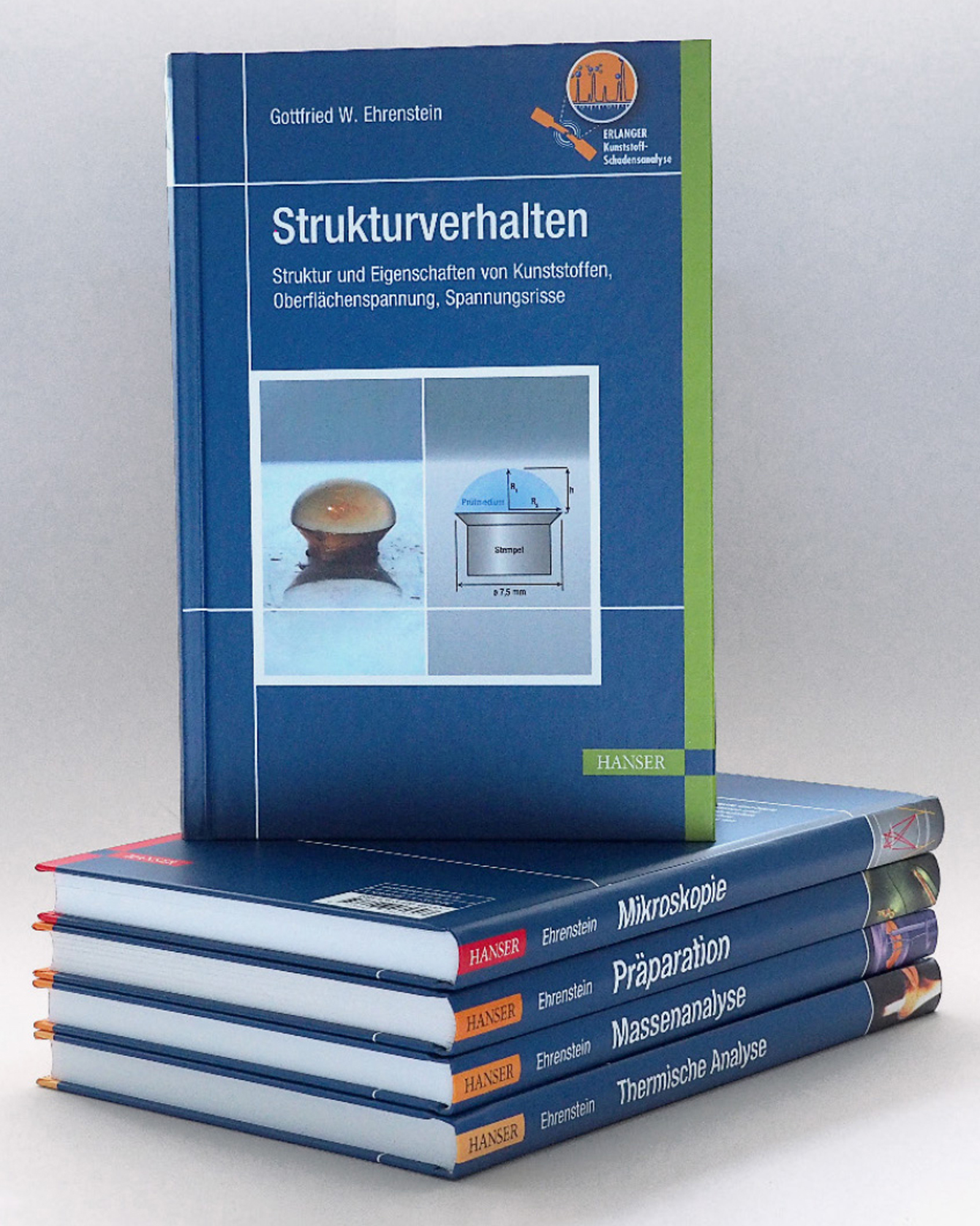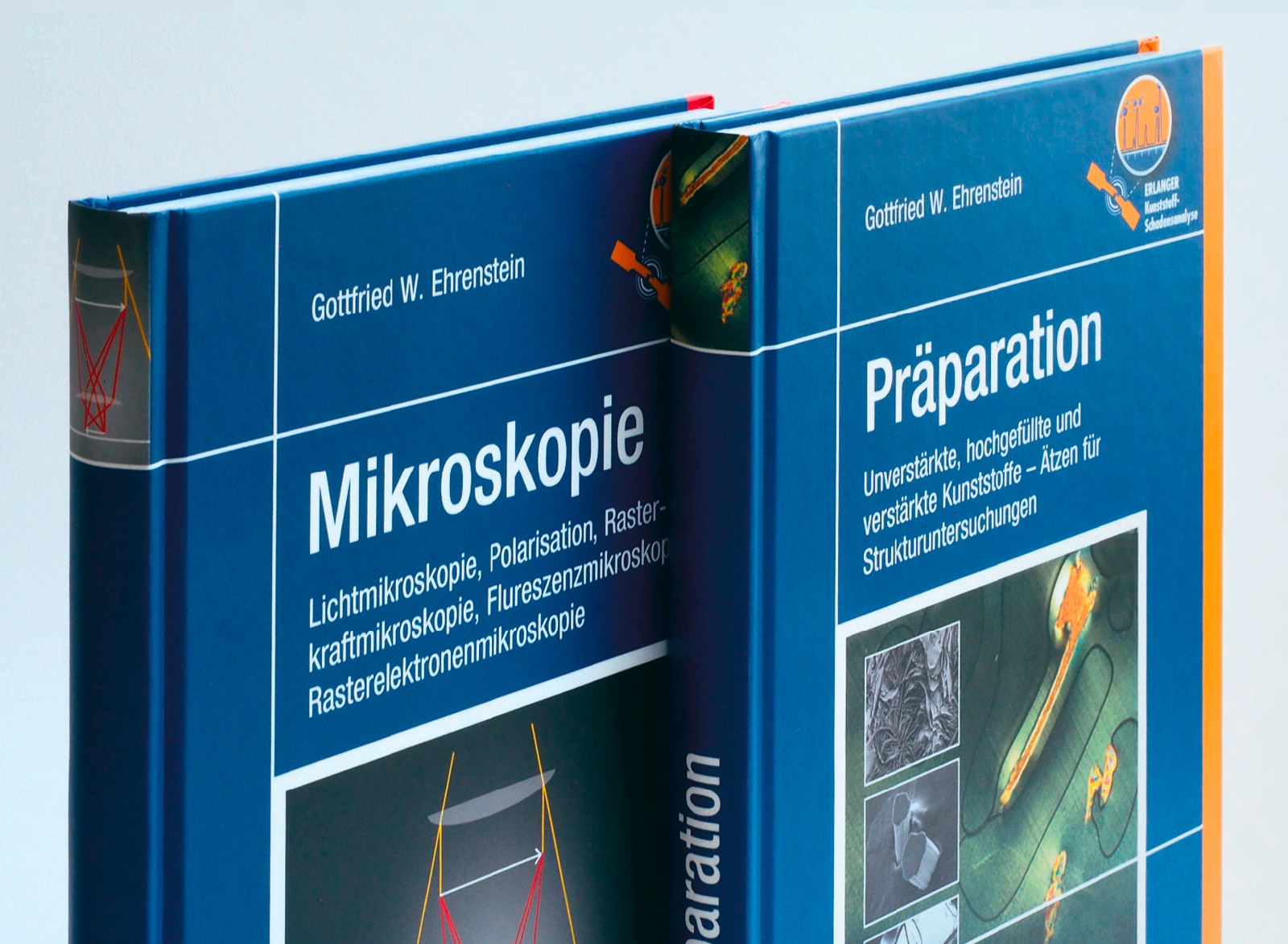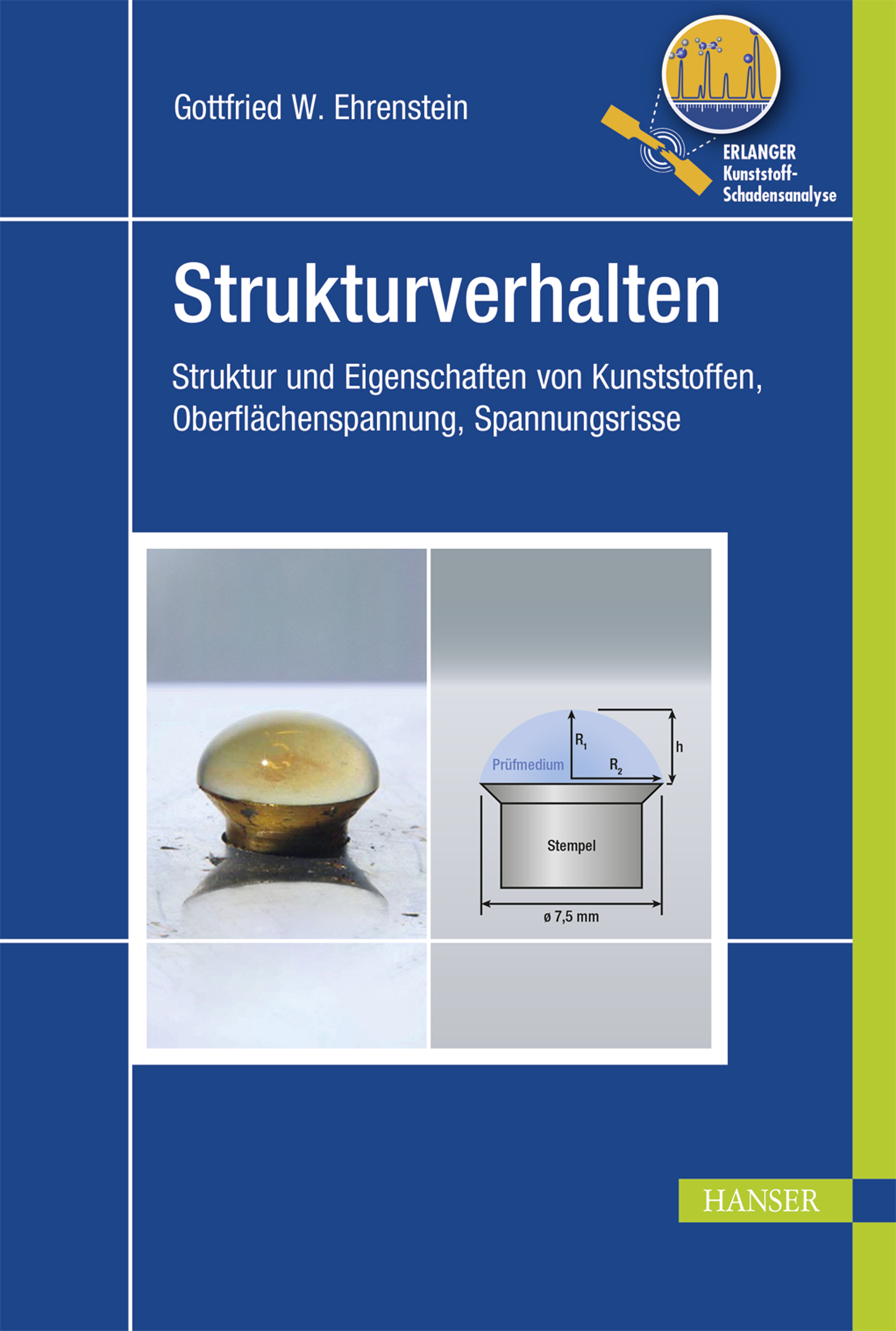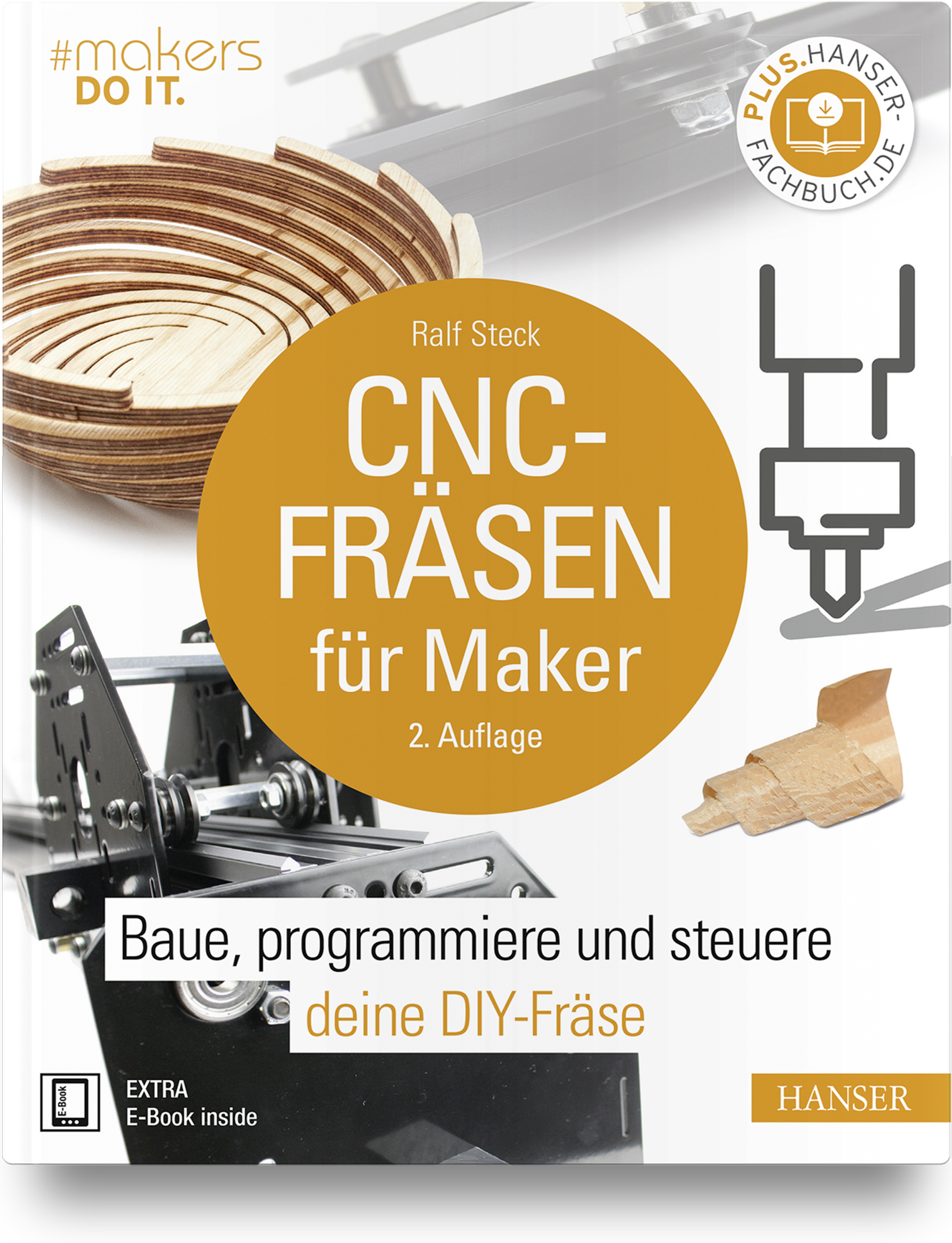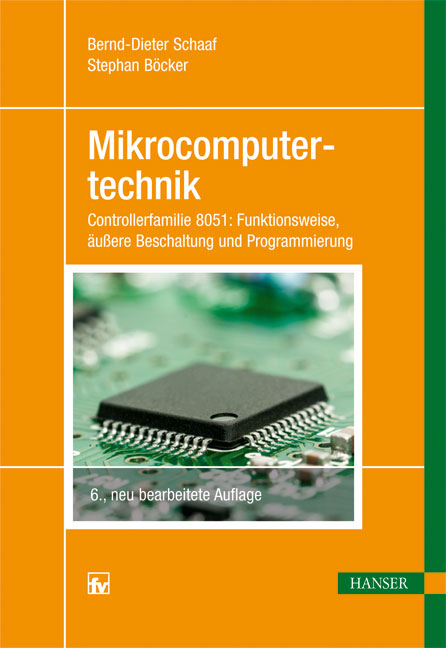- Grundlagen
- Maschinenbau allgemein
- Technische Mechanik
- Technische Thermodynamik
- Technische Optik
- Werkstoffe
- Management
- Konstruktion
- Konstruktion allgemein
- CATIA
- NX
- Pro/Engineer & Creo Parametric
- SolidWorks
- Inventor
- Weitere Systeme
- Sie sind hier:
- Fachbuch
- Kunststofftechnik
- Werkstoffprüfung und Analytik
Thermal Analysis of Plastics
Theory and Practice
inkl. MwSt., ggf. zzgl. Versandkosten
sofort lieferbar
- ISBN: 978-3-446-22673-9
- Buchangaben: 1. Edition, 09/2004
397 Seiten, Fester Einband
In this book, the different test methods and their variations are described in detail, emphasizing the principles and their application in practice. Using practical examples, different approaches to problem solving are presented with a focus on the interpretation of the experimental results.
Thermal analysis provides information on important properties of plastic materials, such as nucleation, crystallization, degree of crystallinity, recrystallization, melting and solidification, glass transition, curing and postcuring, thermal stability, thermal expansion, relaxation of orientation and internal stresses, pvT-data, and others.
This book is a must for everybody involved in material and product development, testing, processing, quality assurance, or failure analysis in industry and laboratories.
Contents:
- Differential Scanning Calorimetry (DSC)
- Oxidative Induction Time/Temperature (OIT)
- Thermogravimetry (TG)
- Thermo-Mechanical Analysis (TMA)
- pvT-Measurements
- Dynamic-Mechanical Analysis (DMA)
- Micro-Thermal Analysis
- Brief Characterization of Key Polymers

In this book, the different test methods and their variations are described in detail, emphasizing the principles and their application in practice. Using practical examples, different approaches to problem solving are presented with a focus on the interpretation of the experimental results.
Thermal analysis provides information on important properties of plastic materials, such as nucleation, crystallization, degree of crystallinity, recrystallization, melting and solidification, glass transition, curing and postcuring, thermal stability, thermal expansion, relaxation of orientation and internal stresses, pvT-data, and others.
This book is a must for everybody involved in material and product development, testing, processing, quality assurance, or failure analysis in industry and laboratories.
Contents:
- Differential Scanning Calorimetry (DSC)
- Oxidative Induction Time/Temperature (OIT)
- Thermogravimetry (TG)
- Thermo-Mechanical Analysis (TMA)
- pvT-Measurements
- Dynamic-Mechanical Analysis (DMA)
- Micro-Thermal Analysis
- Brief Characterization of Key Polymers

Prof. em. Dr.-Ing. habil Dr. h.c. Gottfried Wilhelm Ehrenstein hat nach einem humanistischen Abitur an der Technischen Hochschule Hannover Allgemeinen Maschinenbau studiert. Nach der Promotion arbeitete er 10 Jahre in der Anwendungstechnischen Abteilung Kunststoffe der BASF AG und war gleichzeitig Lehrbeauftragter und nach der Habilitation 1976 Privatdozent der Fakultät für Maschinenbau der Universität Karlsruhe (TH, Prof. Macherauch). Von 1977 bis 1989 war er Inhaber des Lehrstuhls für Werkstoffkunde/Kunststoffe der Universität-Gesamthochschule Kassel, ab 1989 Professor für Kunststofftechnik des neu eingerichteten Lehrstuhls der Universität Erlangen-Nürnberg.
Prof. em. Dr.-Ing. habil Dr. h.c. Gottfried Wilhelm Ehrenstein hat nach einem humanistischen Abitur an der Technischen Hochschule Hannover Allgemeinen Maschinenbau studiert. Nach der Promotion arbeitete er 10 Jahre in der Anwendungstechnischen Abteilung Kunststoffe der BASF AG und war gleichzeitig Lehrbeauftragter und nach der Habilitation 1976 Privatdozent der Fakultät für Maschinenbau der Universität Karlsruhe (TH, Prof. Macherauch). Von 1977 bis 1989 war er Inhaber des Lehrstuhls für Werkstoffkunde/Kunststoffe der Universität-Gesamthochschule Kassel, ab 1989 Professor für Kunststofftechnik des neu eingerichteten Lehrstuhls der Universität Erlangen-Nürnberg.














